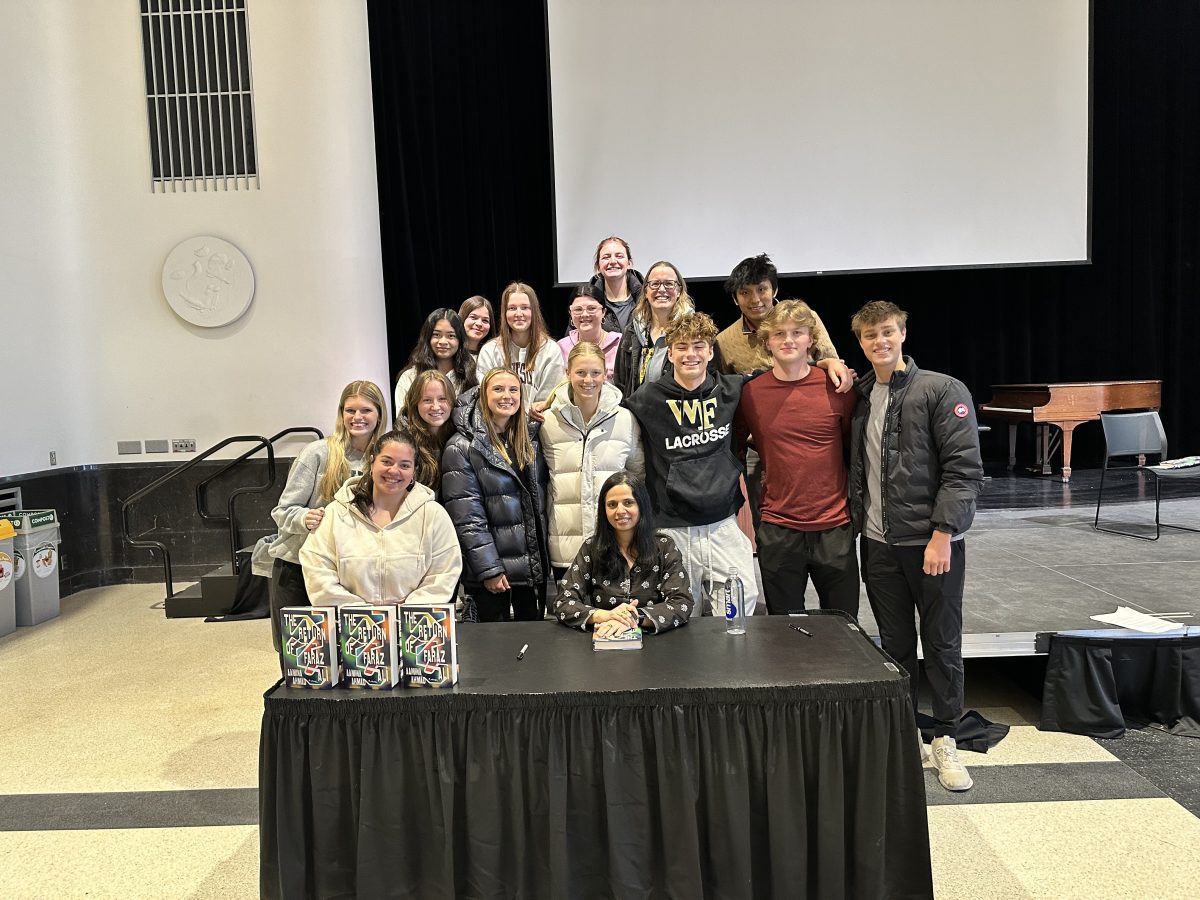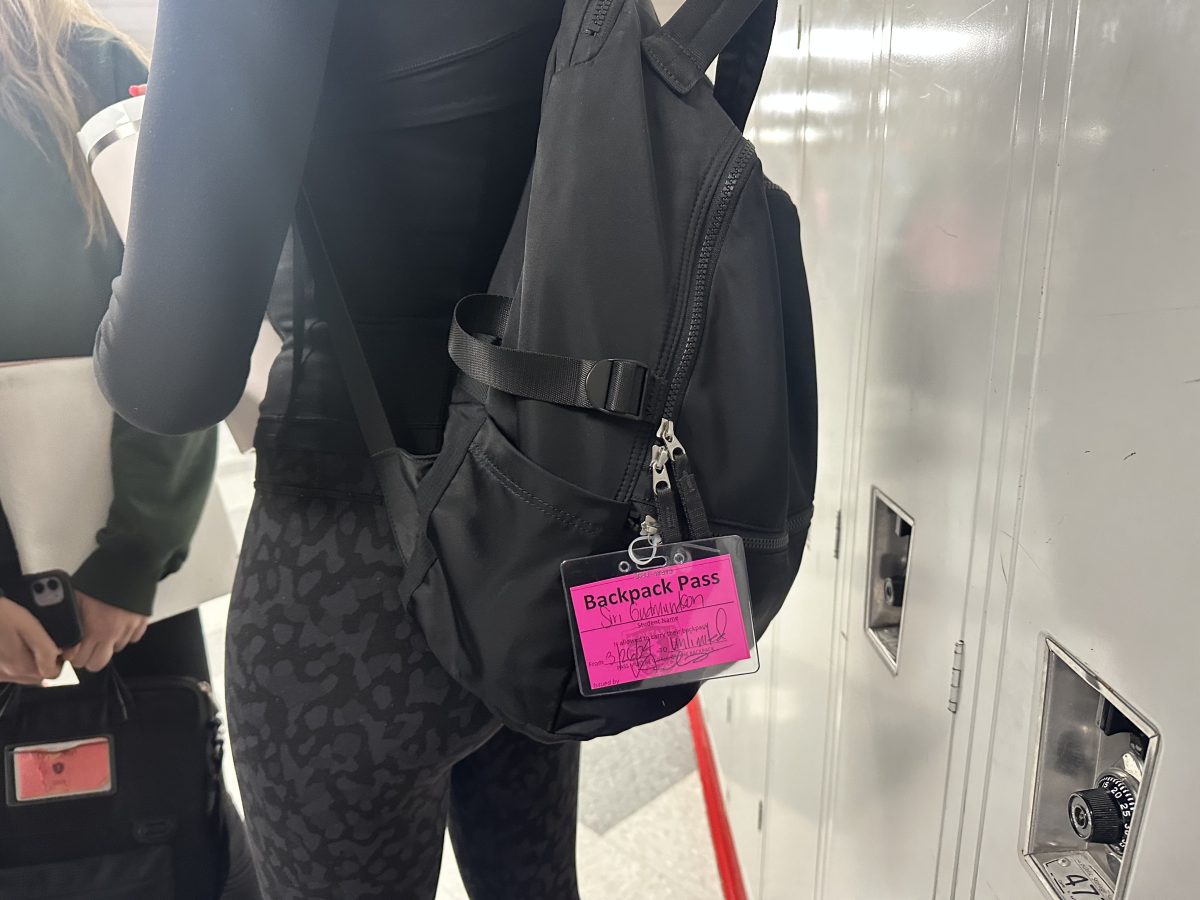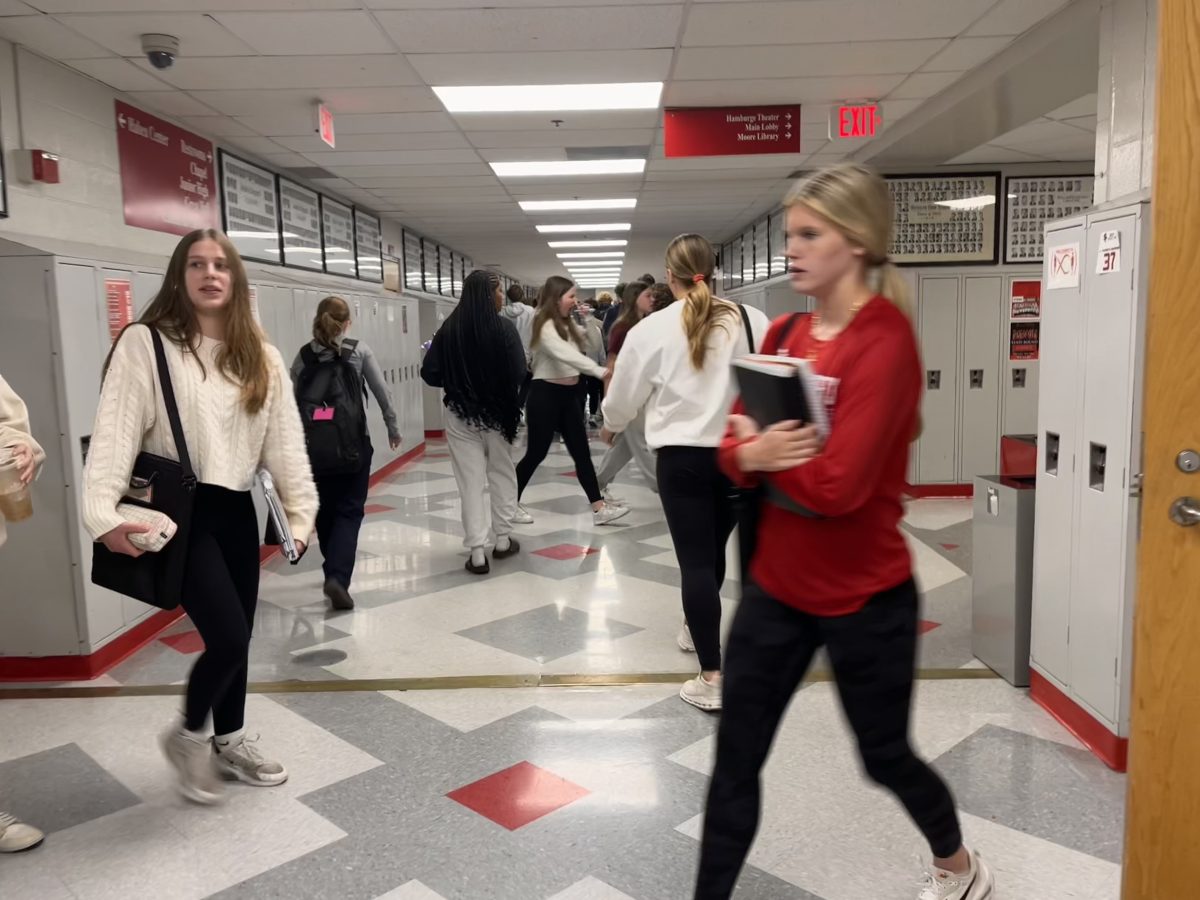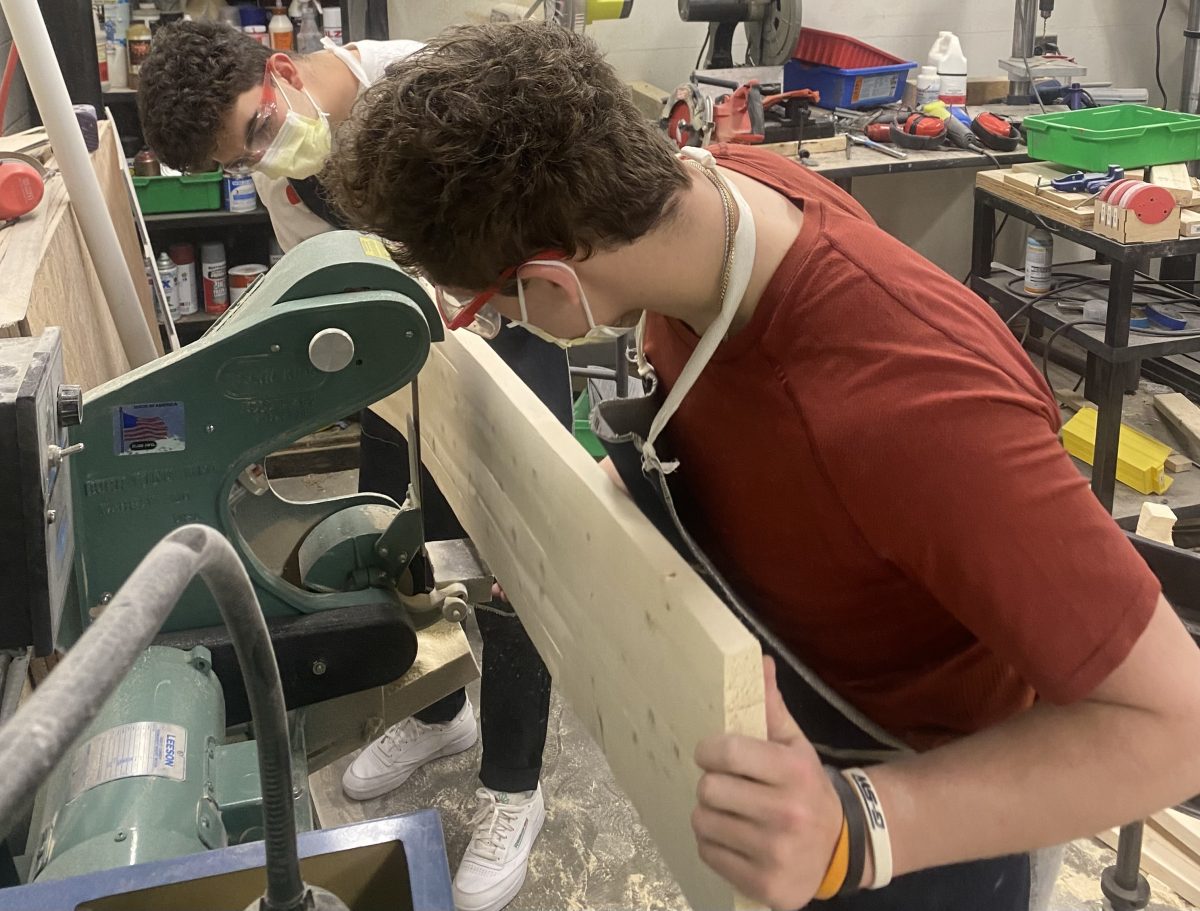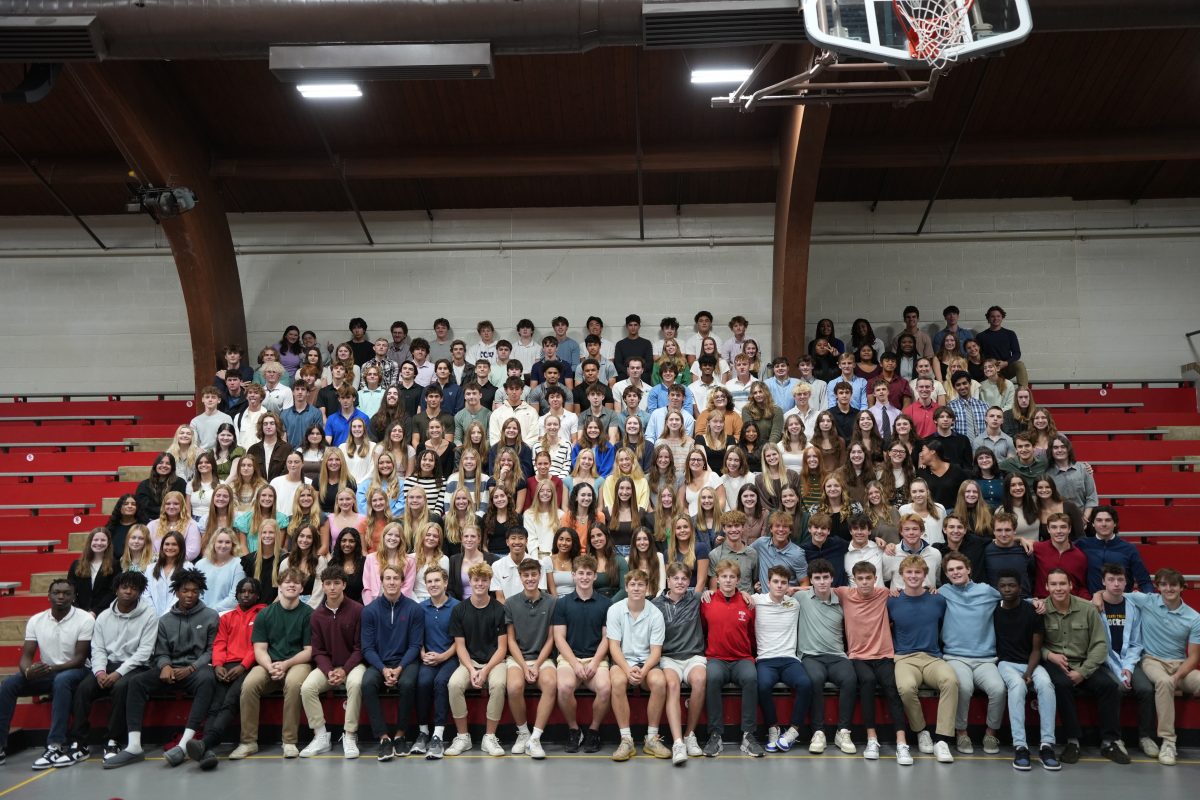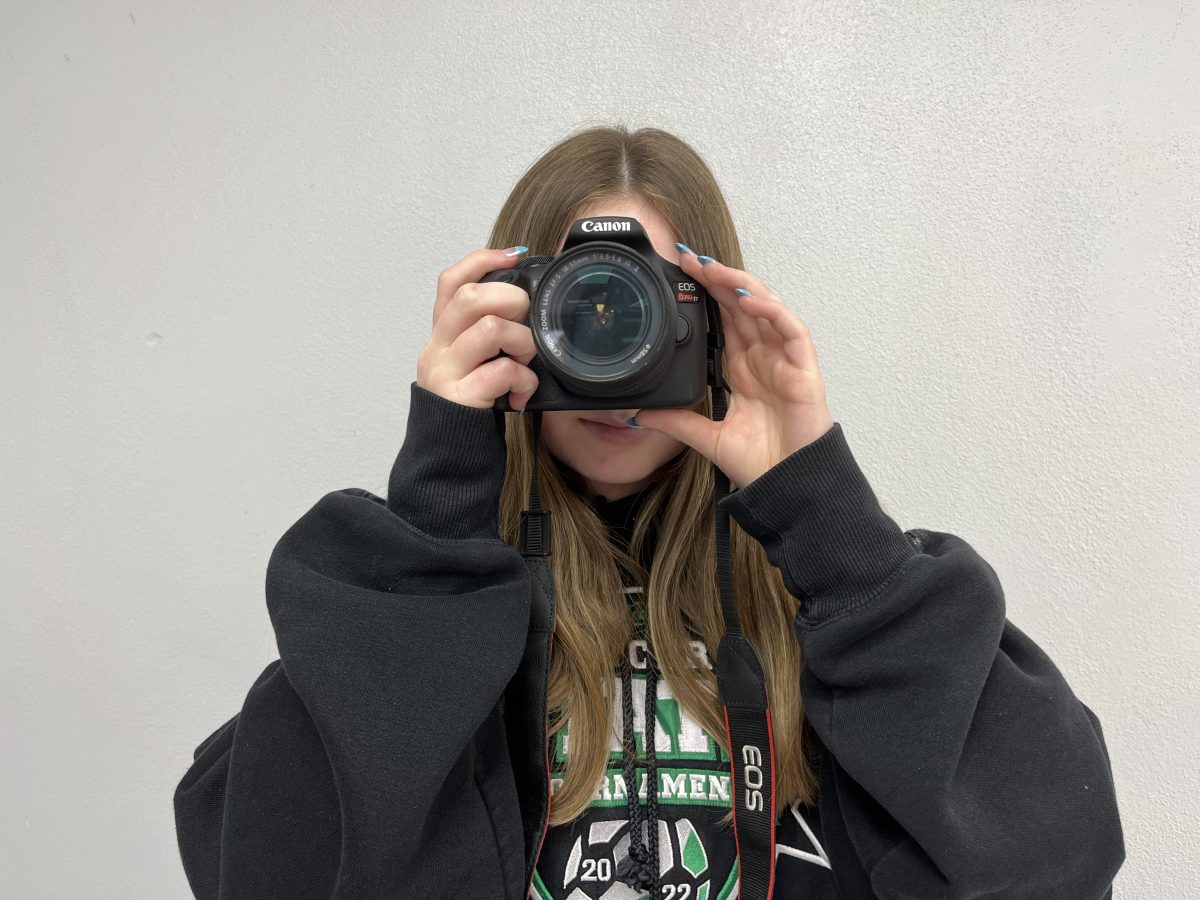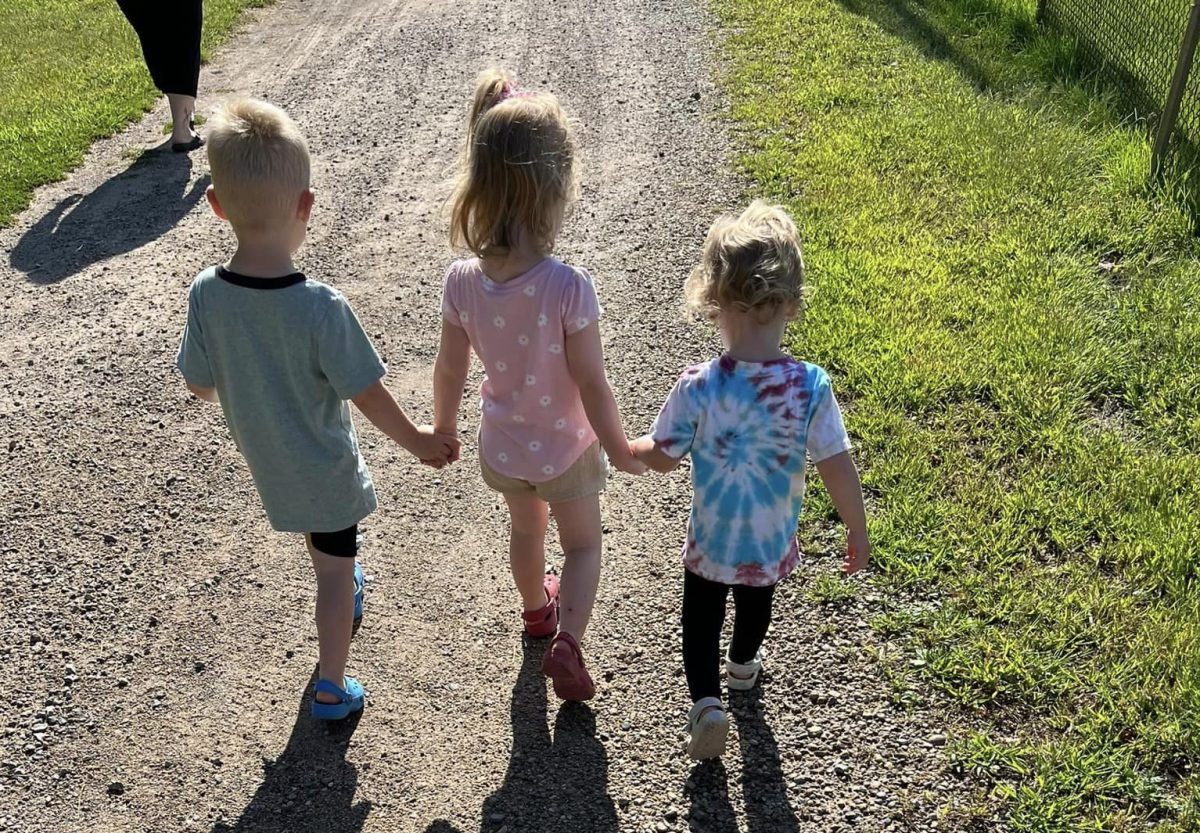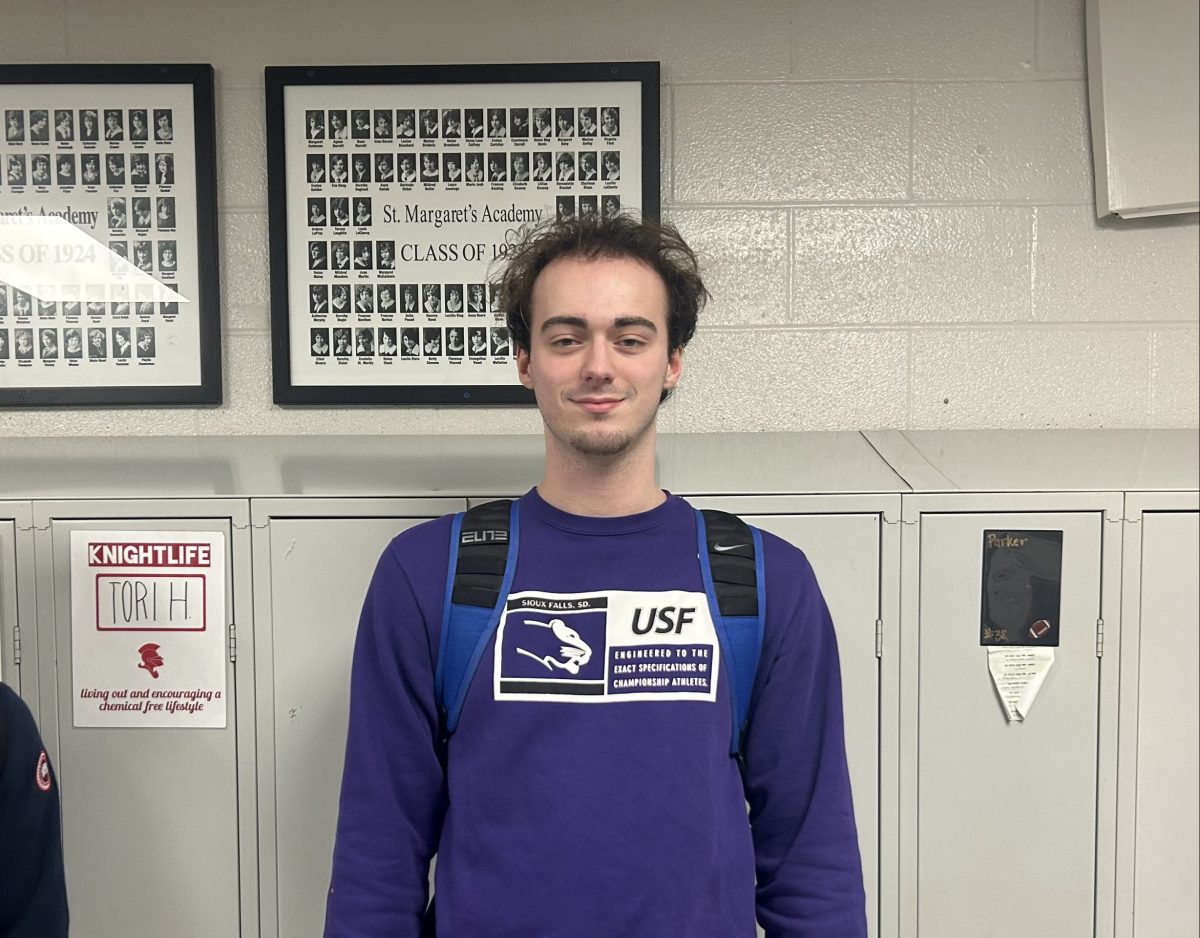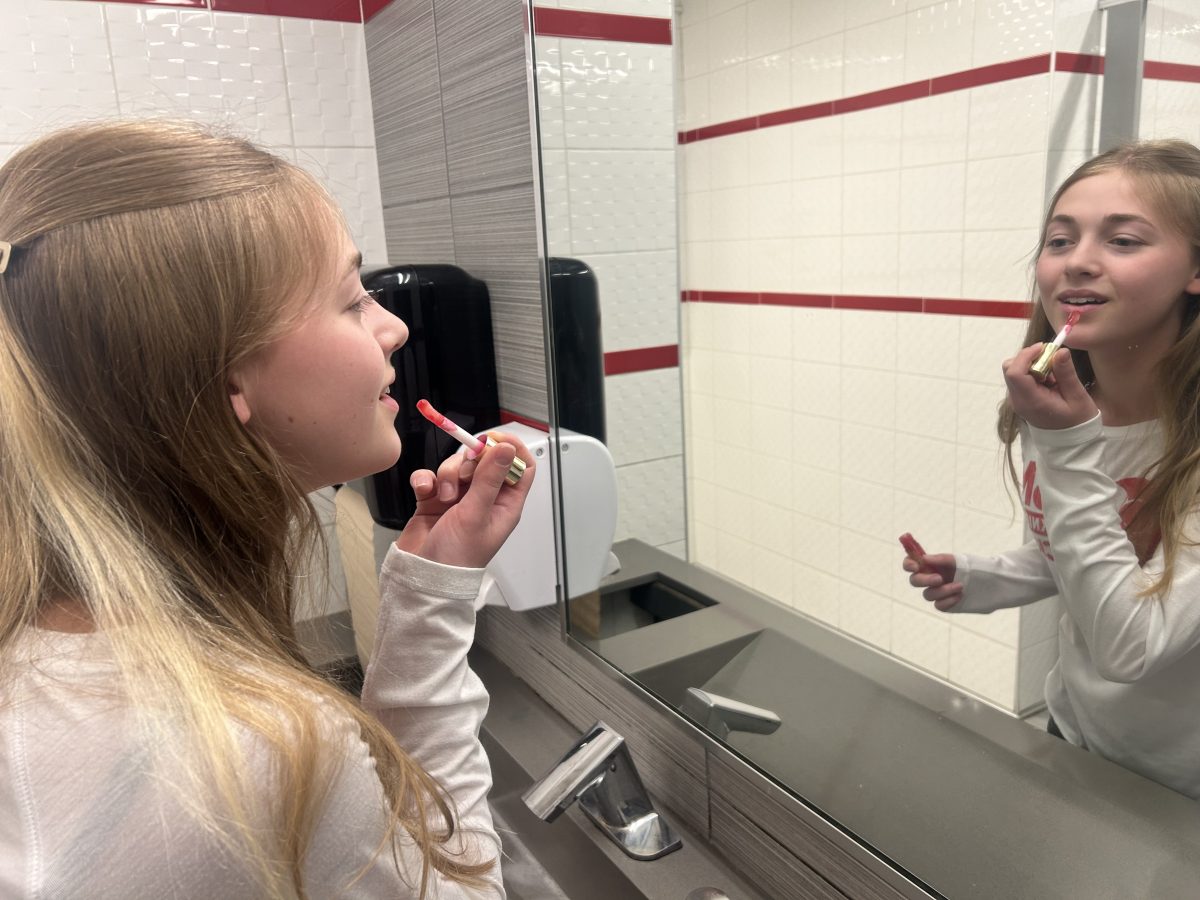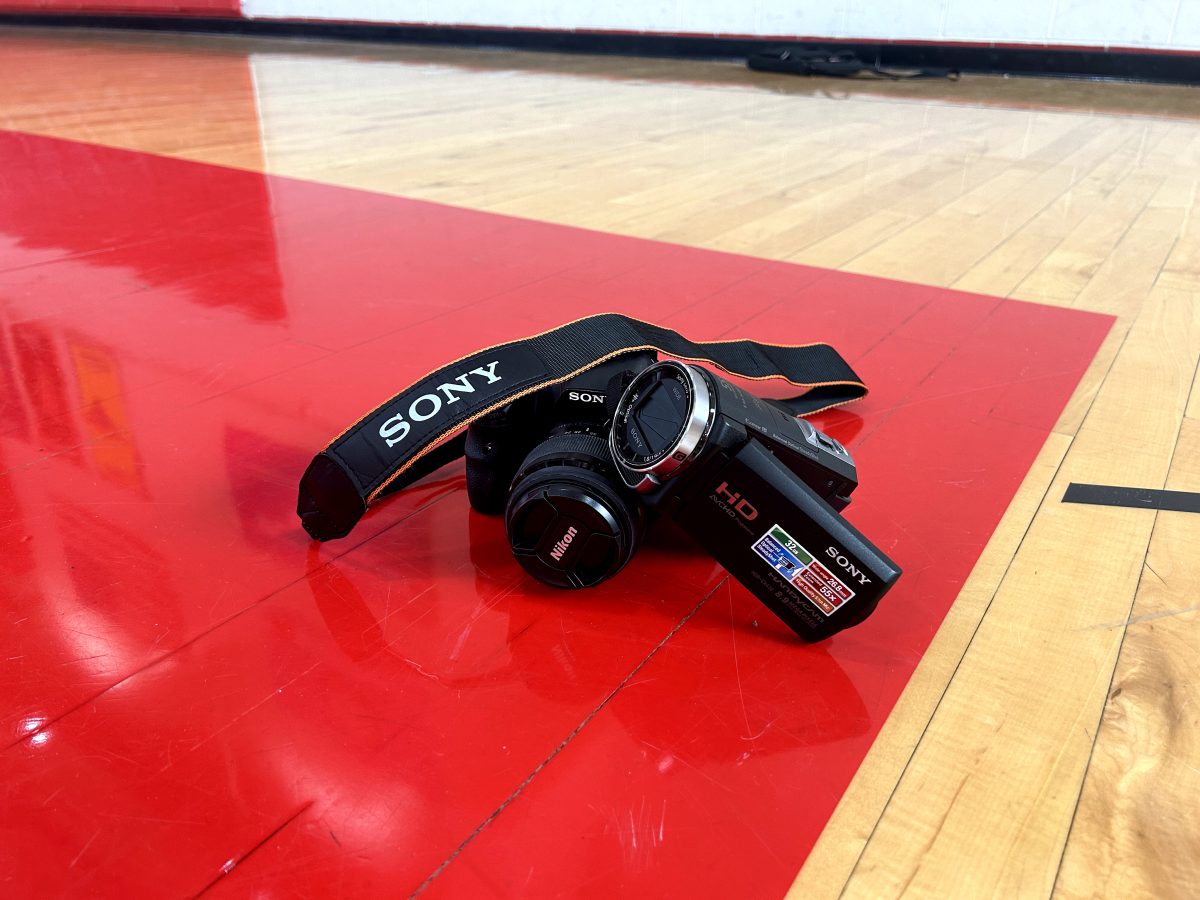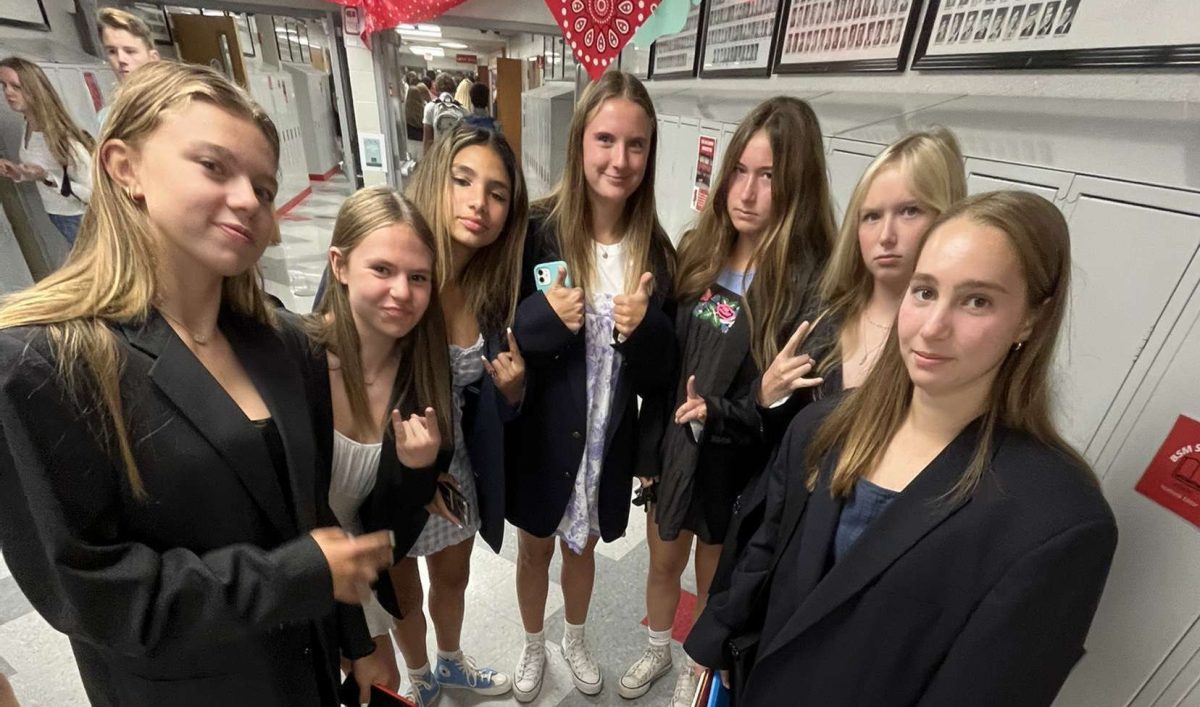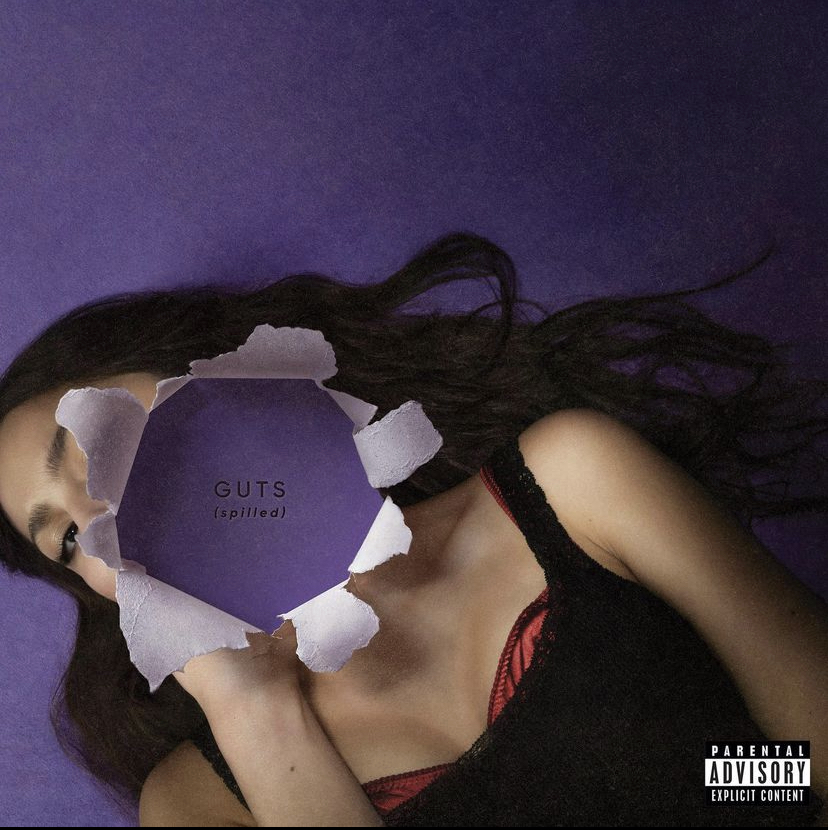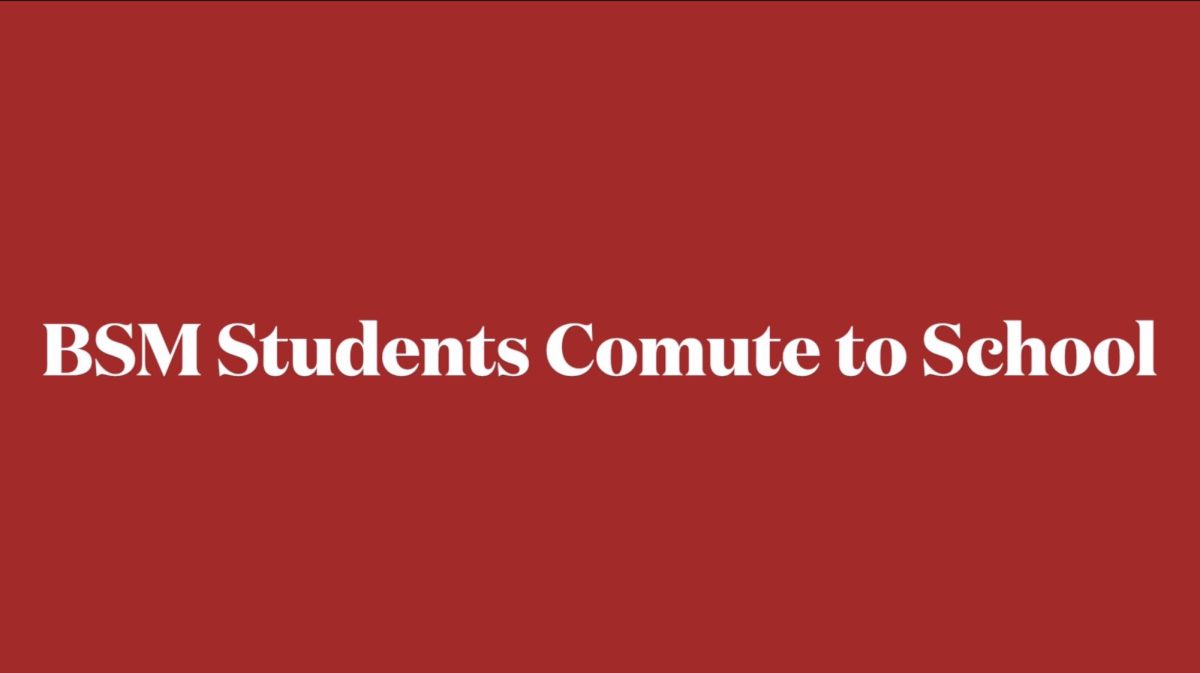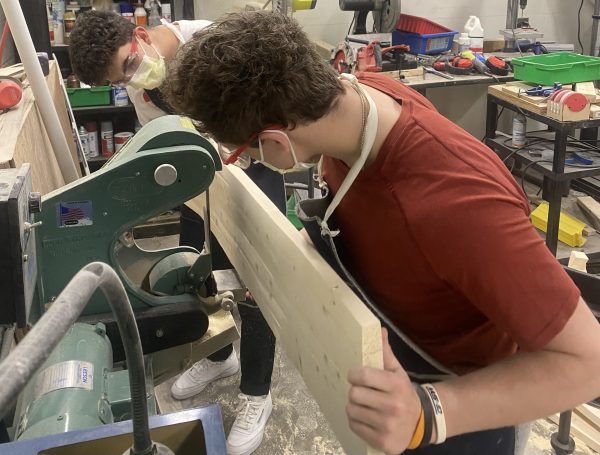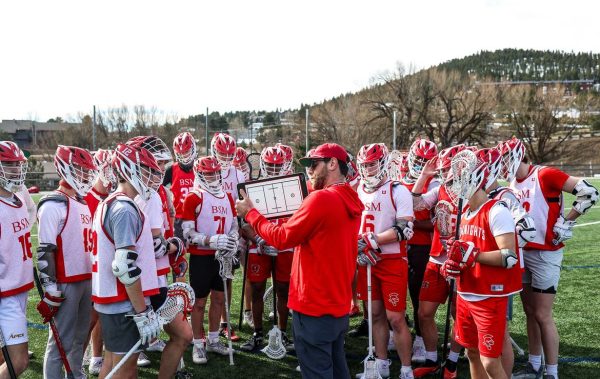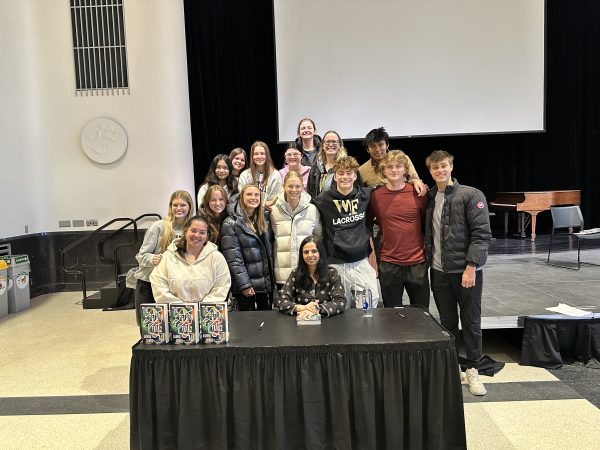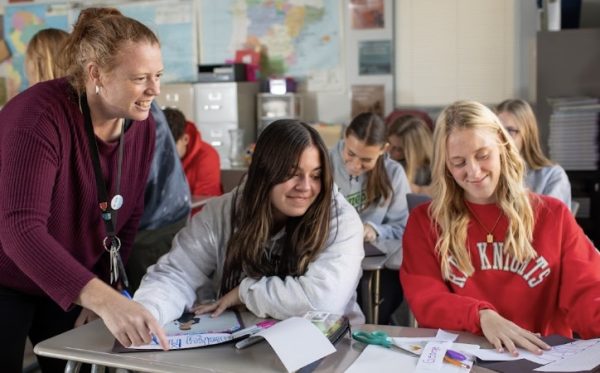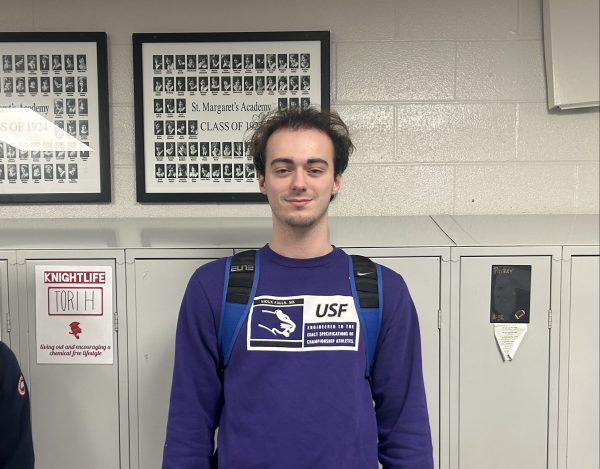Missionary visits religion classes
Ms. Liz Mach, aunt of junior and alumnus, works as a Maryknoll Lay Missioner in Africa and spreads the message of her service to religion classes.
Volunteering is a huge part of BSM’s culture. By bringing in speakers, students can get a first hand account of volunteer opportunities beyond high school. Liz Mach has worked in Africa for the past 40 years as a Maryknoll Lay Missioner. As the aunt of junior Erin Long and alumnus Liam Long (‘17), she has visited religion classes for several years, teaching about her work in Tanzania, East Africa, and South Sudan.
Mach currently works with the Bishop of Musoma in Tanzania helping to find grants for a child protection and women’s rights shelter there called JipeMoyo Center. While her work spans across many countries, there is one common thread amongst who she has helped for the past 40 years. “We try to focus on the children running from gender based violence. GBV is used as an umbrella term all around the world for any issue that affect women and children: female genital mutilation, child marriages, domestic abuse, trafficking of girls and women,” Mach said.
Throughout her decades spent in Africa, Mach has worked with a wide array of people in many different situations. At one point in her life, she worked in war-torn South Sudan, working with the victims of the conflict. “I worked with different ethnic groups from all of over the place in Sudan. The Nuba women that were coming down to us were fully circumcised women. They had undergone pharaonic circumcision and they were running from the war as we were living there to work with them,” Mach said.
Working in the midst of a war deeply affected her daily reality. “Sometimes I would be sitting there and someone would come running in because the bombing planes were coming over… and they would come in and just grab me off my chair and throw me to the ground,” Mach said.
The common bombings wasn’t the worst of the war Mach saw during her time in South Sudan. “I was actually in a ambush as I was moving through out of Sudan one time… my car was all shot up and I ended up with a lot of shrapnel and very serious issues with post traumatic stress because of it,” Mach said.
I think we can always do more than we are doing. We can always do more. — Ms. Liz Mach
Adjusting to life in a war zone, then subsequently coming back to America and having to adjust to American culture while also struggling with PTSD taught Mach a lot about how to take care of herself. “I’ve learned the steps that I need to do to stay healthy. Even in the midst of going back to Tanzania and being part of all these issues, I know that I need to take care of myself, otherwise I’m no good to anybody else,” Mach said.
As a result of her work with various types of female genital mutilation (FGM) and gender based violence, Mach has found that many of the issues facing GBV victims in Africa are intertwined.
“I worked for about 11 years with women who had suffered from obstetric fistula, and we began to realize when we were doing our research that many of the young girls who were married early or had undergone FGM were also at great risk for getting obstetric fistula,” Mach said.
Mach has dedicated her life to helping others, but going to Africa isn’t the only way to make a difference in people’s lives. “Just be open to listen. Hear [other’s] stories. We can’t always make a big difference for them, we have to listen and hear their stories and find out what they need from us,” Mach said.
If you would like to help, please donate to the Jipe Moyo Musoma Center Mach works at or to the Maryknoll Lay Missioners.

